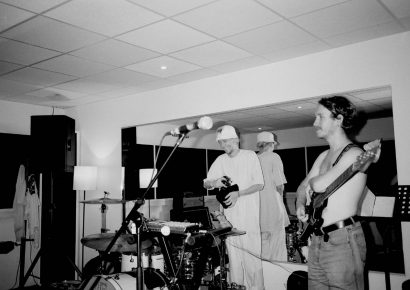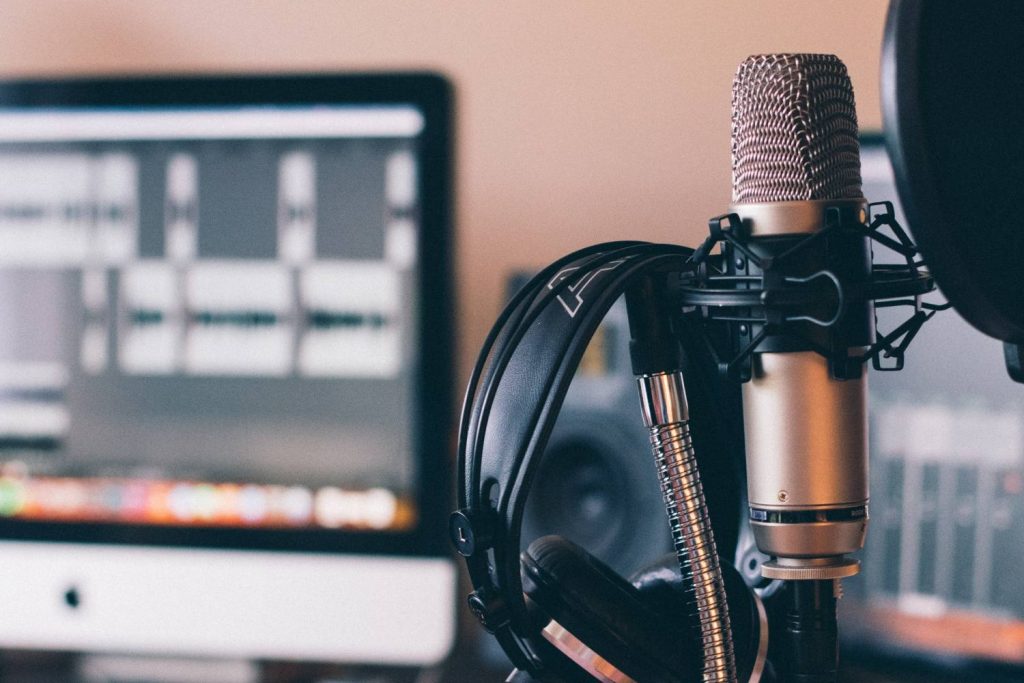"If you're in music for the money, you're in the wrong business."
All but gone are the days of buying a record, CD or tape complete with artwork, a track listing and lyric sheet, and taking it home to listen from start to finish. An album would be funded by a label, recorded in a studio with a band, producer and engineer, before being mixed and mastered (though the modern definition of mixing and mastering are more recent than you’d think).
In an industry where the way we consume art dictates how artists produce their music because it directly affects their bottom line, the question begs to be asked – is the idea of an album dead?
An album, or LP (Long Play) is usually approx. 10 songs that’s released on a regular rotation or ‘album cycle’. Historical, super-star musical figures who’ve made their fortunes during the golden era of record making, are riding the paradigm shift into selling off their catalogues.
Read all the latest features, columns and more here.
The album as a product makes sense in an industry where consumers are buying music from their favourite artists, but in the modern era where we toggle between almost record ever made, available digitally, is there even a point to the financial, professional and emotional investment that an album takes if users listen to ten songs in a row from different artists? And if not – how can we maximise our output to deliver a product that our fans want to hear, and that will help us grow as artists? Are there any social cues that may begin to reveal what lies ahead for artists?
In recent years, it’s become increasingly common for super-star artists with huge catalogues to sell off the rights to their songwriting and publishing for gargantuan prices. And why? Surely their catalogues would be generating consistent income as long as their songs are being played, sold and streamed – but maybe not.
Selling an entire catalogue of songs (and we’re talking Stevie Nicks, Neil Young and Bob Dylan level of stardom and fame here) seems to be becoming the safe option for artists who’ve lived comfortably off of their music for years. Album sales aren’t what they used to be, because we all have access to massive catalogues of music in the palms of our hands, and streaming doesn’t generate nearly as much income as album sales have in the past.
As the income, advances and budgets for 99% of artists begin to nose-dive, maybe selling off old catalogues is a safer bet for an established artist, but clearly the companies purchasing these rights are investing because they can continue to make money from it, despite streaming services offering a tiny royalty to the owners of the music they’re charging the general public to access.
I think this speaks to a bigger picture of large companies with capital to invest having the financial freedom to make these investments that will generate income over time. It may be enough to feed the machine, but it’s not enough to support a sole artist, and I think that’s an important difference to define. While these options are there for artists who’ve come up, sold records and made money, what about newly formed or growing bands in the modern era of streaming and iTunes?
Playlisting on streaming services like Spotify and Apple Music are fast becoming a modern way for bands to reach mass exposure. However, this is often due to one song from a larger release being included in the playlist, or even a single being consistently searched. Even the way songs and singles are uploaded to and displayed in Spotify dictates how we listen.
Income from streaming services is based on song plays, not album plays – so why release an entire album worth of material if a handful of songs generate all your income anyway? Wouldn’t it be more efficient to focus your time, energy and money into a few really good songs? Hip-hop and rap lead the way in the notion of mix-tapes and singles, with artists releasing bite-sized chunks of music consistently rather than catalogues of work in an album that may only have a handful of popular songs anyway.
Releasing music in this way speaks to another element to think about when releasing music – the money. Recording, mixing and mastering can be an expensive endeavour. Engineers and producers are often freelancers with 10,000 hours under their belts, so you’ll be paying top dollar for their experience, expertise and their ability to turn your songs into their best possible incarnation.
Advances from record labels are dwindling because, to be fair, record labels can’t guarantee the return on their investment, let alone profit off it once you’ve repaid the advance. So if recording is more expensive, surely you should maximise your time in the studio and record a few songs or an album all at once, right?
Recording takes a lot of planning and set-up, and just as much pack down and after-hours file management, usually with a little recording in between, of which a studio professional will need to be paid for the entirety of. So if you can maximise the recording time by making an album and only pay for set-up and pack-up once, you’re ahead. Right?
I think many of the points raised in this last part of the article, as well as my ability to contradict the points I’m discussing, define what it is to make music professionally in a broad sense. We’re all scrambling to see what sticks and how we can work best to maximise something creative that has no rules, boundaries or definition, which again begins to ask us to define why we’re in music at all.
We can do away with albums and just focus on singles to generate income from streaming, or print them to vinyl and make razor-thin profits by selling to people who want to hold a physical piece of art. To be blunt, it can be exhausting and is largely capitalised by people who don’t understand the creative process, nor the emotional effect that really great music can have on us as players and listeners, because they’re the ones with the capital to get our music out into the world.
But we love making it, and there’s something within us that must be put forth into the world, even as we lose money if we sign away the rights to our own music, messages, chords and rhythms. This clarifies another resounding statement echoed by many professionals: if you’re in music for money, you’re in the wrong business.
For further reading on this topic, take a look at ACMA’s Trends in viewing and listening behaviour survey.







